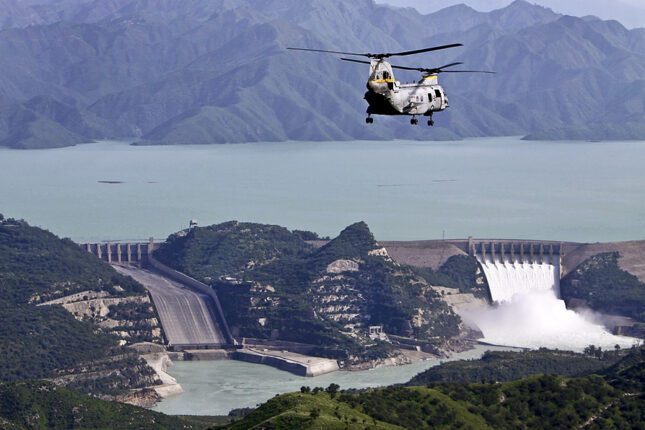-
Suspending the Indus Waters Treaty: What it Means and Why it Matters
June 18, 2025 By Jiedine I.A. Phanbuh
On April 23, 2025, India announced the suspension of the Indus Waters Treaty (IWT) following an attack that killed more than 20 tourists in Indian-administered Kashmir. While the region’s history of political tensions and conflict has tested the treaty many times, the IWT has endured through wars, diplomatic freezes, and border conflicts. Although the two countries reached a ceasefire in May, the IWT remains suspended.
But what does “suspending” the treaty actually mean? The term “suspension” does not appear in the treaty’s text. Article XII stipulates that the treaty can only be modified or terminated by mutual agreement between the two governments. While the political signaling behind such an announcement may serve a broader strategic narrative, its status under international law and treaty interpretation remains unclear. This moment invites a closer examination of the treaty’s legal structure, particularly its mechanisms for dialogue and dispute resolution under stress.
A Symbol of Functional Diplomacy
The IWT was signed in 1960 after nine years of negotiations, largely to prevent conflict over shared water resources between India and Pakistan. Following the partition in 1947 and subsequent hostilities, India began diverting river water upstream of Pakistan for its own domestic use. Pakistan registered this move as an existential threat, and another war began brewing. With the World Bank’s involvement, the countries reached a landmark agreement in through the IWT. The treaty has held for nearly 65 years, surviving even during the India-Pakistan wars of 1965 and 1971.
The treaty allocates use of Eastern rivers (Ravi, Beas, Sutlej) to India and Western rivers (Indus, Jhelum, Chenab) largely to Pakistan. Despite its limitations—including a lack of provisions for groundwater, environmental protection, climate change, and the region’s growing populations—it has helped avert water wars and stands as a rare example of enduring functional diplomacy between the two countries.
Enabling Dialogue and Dispute Resolution
The IWT reflects a forward-thinking approach to transboundary water governance that prioritizes dialogue, neutrality, and continuity. Article IX, widely regarded as a model framework for resolving international water disputes, outlines a multi-tiered process to address questions, differences, and disputes and is often cited in legal and diplomatic circles for its effectiveness.
At the first level, technical issues are handled by the Permanent Indus Commission, a standing body with one commissioner from each country. If the Commission cannot resolve a disagreement, the matter can be referred to a Neutral Expert to help clarify technical points. More complex disputes over interpretation or application can be taken to a Court of Arbitration, with the World Bank facilitating the process.
Article IX has proven effective over the years, even during periods of heightened tension. In 1992, for instance, Pakistan objected to India’s plans to build a dam on the Chenab River. When initial talks failed, a Neutral Expert was appointed in 2005. After design adjustments, the dam was constructed, despite tensions surrounding the Kargil War and the 2008 Mumbai attacks. The treaty’s mechanisms worked, even in times of high tension.
The Role of Third-Party Diplomacy
With the treaty’s status in question, third parties are more important than ever. The World Bank, as a signatory and designated facilitator, has historically played a stabilizing role. Third-party engagement can provide both technical neutrality and diplomatic space to de-escalate tensions. At a time when unilateral interpretations of the treaty are emerging, such mechanisms are essential to uphold process over impulse.
When tensions escalated last month, fears of war rose sharply, but a cease-fire was announced on May 10. With the treaty still suspended, however, third-party engagement—like those that undergirded the original treaty—remains crucial. Donor nations and international organizations could help by supporting cooperative projects under the treaty’s underutilized Article VII, such as joint engineering projects or large-scale infrastructure initiatives.
China, as the most upstream country in the Indus Basin, also has a growing role. Although not a signatory to the IWT, China’s infrastructure development and water management decisions carry downstream consequences. China controls the headwaters of the Indus and Sutlej Rivers, and in the past has pledged to stand with its “iron brother,” Pakistan, in water disputes with India. In the long term, any regional water dialogue may need to consider China’s growing strategic and hydrological influence.
What is at Stake?
Actions taken in haste in the Indus Basin could have lasting consequences for security, climate resilience, and sustainable development—regionally and globally. Both India and Pakistan rely heavily on the Indus for food security and economic stability. Yet, decades of mismanagement, such as over-pumping groundwater and growing water-intensive crops, have left both countries vulnerable. With Pakistan’s population expected to reach 300 million by 2050 and India already the world’s most populous country, water demand will only increase.
The Indus Basin is already experiencing more frequent extreme weather events, shifting monsoon patterns, and declining water availability. These challenges strain agriculture and heighten the risk of conflict. A breakdown of the treaty could undermine regional stability, disrupt food systems, and intensify political tensions between the two nuclear-armed neighbors.
The international community has an opportunity to help de-escalate tensions and enable India and Pakistan to face their shared water crises. Suspending cooperation over rivers may appear symbolic, but its real consequences flow downstream—literally and diplomatically.
Jiedine I.A. Phanbuh is a PhD candidate in Global Governance and Human Security at the University of Massachusetts Boston.
Photo Credit: A U.S. Marine Corps helicopter flies near the Tarbela Dam in Pakistan’s Khyber-Pakhtunkhwa province in 2010, courtesy of Paul Duncan/Wikimedia Commons.
Sources: AP News, DAWN, The Indus Waters Treaty, The London School of Economics and Science, The New York Times, The World Bank Group.
Topics: meta
 A Publication of the Stimson Center.
A Publication of the Stimson Center.








